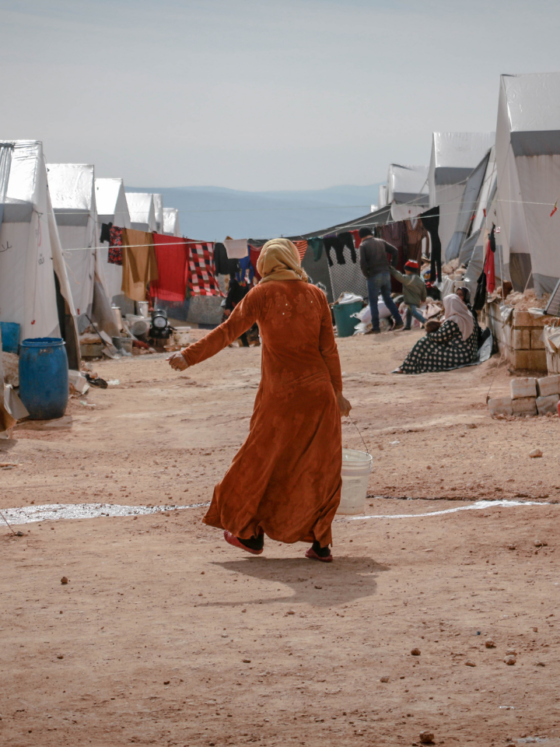What is domestic policy?
“Domestic Policy” refers to the decisions made and the actions taken by a national or state government to deal with the internal issues and needs of the country, within the country itself.
Domestic policies affect or pertain to problems within the borders of a particular country, and can only be enforced within the country where the law or policy is passed.
Policies are made at local, state, and federal levels – each of these levels is ‘domestic policy.’ Local laws and policies only pertain to the area in which the decision is made. State laws and policies affect all of the regions / municipalities within a given state. Federal policies apply to the entire country, including all of the states and all of the municipalities within a state. The overall goal of domestic policy is to improve the lives of all citizens and to reduce civil unrest.
Foreign policy relates to policies that deal with the relationship between two countries – this we will cover in our next policy post.
What is the importance of domestic policy?
Broadly, domestic policy relates to areas that are important to the internal wellbeing of society. Examples include education, business, energy, healthcare, law enforcement and public safety, taxation, social welfare, natural resources, and personal rights / freedoms.
Domestic policy affects the daily lives of every citizen (and often non-citizens) that lives within the borders of the country. Domestic policy tends to be very visible to the everyday citizen which often makes it more controversial than its foreign policy counterpart.
Education policy plays out every day when your child goes to school. Business policy is evident in the practices of every major corporation in the United States, and shapes the process of start-ups. Every time you go to the doctor’s office, healthcare policy is at play. Every time you get pulled over for speeding, public safety policies are acted upon. When you discuss gun-control laws, you are discussing law and policy.
How is domestic policy shaped (in the United States)?
Domestic policy is largely shaped by the government structure of a given country or state. In the United States, domestic policy is primarily created and upheld by elected leaders, government agencies, and bodies of lawmakers. There are, however, a number of intervening factors that play an important role in the policymaking process.
Voters determine which individuals are elected into office, and which political party has the power to control and influence policy. The President plays a role in the law and the economy – this plays an important role in shaping the success and failure of policy in various areas. Mass media, including news outlets and social media companies, have the power to distribute and shape the narrative around domestic policy issues, and consequently, the opinions of people. Activists and advocacy groups have the power to influence policy through education campaigns, connection with local lawmakers, advertisements, demonstrations, protests, and promises of support.
Because of how policy is shaped in the United States, it is very important you vote. Additionally, if you want to be a free thinker, it’s also very important that you try to pick news & media sources that are neutral (or centrist) rather than left or right leaning. The narrative around social issues plays a huge role in how people think, and consequently how people vote – so guard your thoughts, consider both sides of the discussion so that you can think freely, and try to pick news sources that are neutral and intended to report factually rather than influence your thinking.
Policy Out Loud Tip: Consider deep diving into research papers if you are really passionate about a current issue. Research papers are often going to be even better than mere news sources.
Centrist / Neutral News Sources according to the Pew Research Center:
- Wall Street Journal
- BBC News
- USA Today
- NPR
- PBS News Hour
Left and Right Sources according to the Pew Research Center:
- New York Times
- Fox News
- Washington Post
- Huffington Post
- Politico
- The Economist
- Buzzfeed
- Rush Limbaugh Show
- Glenn Beck Program
In countries with different forms of government, policy is created and upheld in different ways, with various levels of citizen and stakeholder participation. For example, authoritarian governments will have little to no citizen participation in law and policy decision-making. This section is focused on Domestic Policy Making, based on the United States.
What are the levels of domestic policy?
Local – Policies which pertain to a specific town.
An example of a local policy may be a specific town’s placement of stop signs, or a city’s initiative to reduce carbon emissions. Click here to see what New York City is doing to reduce their carbon emissions.
Regional – Policies which pertain to a specific county.
As an example, the State of California is made up of 58 Counties. Los Angeles County has different property tax policies than some of the other counties in California, due to the value of homes and population density of the area.
State – Policies which pertain to a specific state.
An example of state policy is the laws and policies pertaining to the use of cannabis in different states. Whereas marijuana is legal in several states such as Washington and Colorado, in Idaho, marijuana is illegal for both recreational and medicinal purposes.
National – Policies which pertain to the whole country / every state in the United States.
In the United States of America, policy consists of all actions taken by the federal government. This includes laws, rules, regulations, and executive orders. An example of this is immigration policy. In the United States, States can participate in regulation and enforcement of immigration policy, but states cannot make their own laws which supersede the federal government laws. Immigration laws apply to all immigrants regardless of how they arrive to this country (by plane, train, foot, or water), where they arrive (through a border, through a coastline state, or via plane landed in any part of the country), or why they want to stay. A policy piece on this is coming in the near future.
Domestic policy categories
Distributive policies
These pertain to the distribution of goods and services to citizens, as well as making sure that cost is equally shouldered by citizens. This means these policies often umbrella the collection of taxes, and the distribution of services provided for by taxes. This means public schools, social services, roads and bridges, and public safety.
Hot topics in these policy areas include tax breaks for the rich and poor, as well as appropriation of funds for police officers. “Defund the police,” is talking about a re+distributive policy.
Regulatory policies
These policies limit the discretion of individuals, groups, and corporations. They are policies that maintain social order. These are most obvious in areas where “right” and “wrong” seem more obvious, such as speed limits. Other examples include anti-discrimination laws and policies, human trafficking laws and policies, and environmental protection policies.
Constituent policies
These have to do with the creation of government agencies to address public needs. These agencies may administer programs such as Social Security or SNAP (food stamps). Other examples include The Food and Drug Administration (FDA), The Internal Revenue Service (IRS), Environmental Protection Agency (EPA).
Redistributive policies
These policies are amongst the nation’s most heated conversations, as they deal with equitable access to a nation’s resources. Policies are dynamic, meaning they are constantly changing. Redistributive policies aim to reallocate funds fairly to address changing problems from one focus to another. This often means shifts in allocation of funds to address social issues such as poverty, nutrition deficiencies, trafficking, child abuse and neglect. It is a heated area of policy because redistributing limited funds often means one important goal is traded for another important goal.
Domestic policy & the role of politics
When you ‘belong to a political party’ what you are really telling people is what you believe the role of government should be, and how policy should function. Conservatives / Republicans often believe that the government should play a more limited role in people’s lives and in policymaking. Their policy positions are often concerned with reducing taxes, making the government smaller, and strengthening national defense. Their approach tends to be more individual. Liberals / Democrats on the other hand often believe in government expansion as a means of meeting the needs of citizens. They promote creating more policy and their positions often support equal opportunity, universal healthcare, increases in minimum wage, environmental regulation, civil rights, and diplomacy. They tend to be more collaborative. Moderates/ Centrist are people who generally believe in the values of one party, and the approach of the other. Centrists are people who share a mix of conservative and liberal views, and are often seen as ‘swing voters’ during voting season. Libertarians believe in as limited a government as possible, meaning as limited policy creation as possible, and more or less want to be left alone by the government.
Aligning with a political party is not merely candidate support, but it is identifying how policy should function, how much of it should be created (or dismantled), and exactly to what ends it should serve.
For those of you reading and wondering what category I fall into, I (pragmatically) fall into the libertarian party because of how I believe my deeply held social values would be most successfully and ethically achieved. You can read about my position by clicking here.
Regardless of where you fall on the spectrum, the effectiveness of domestic policy relates to the efficacy of the government agency charged with putting programs into action. Domestic policy will struggle to succeed if the agency is slow, ineffective, or inconsistent. Where policy is failing, you can often find government agency atrophy.
Areas of domestic policy & the offices that deal with them
Each of the ‘policy categories’ is executed, adapted, managed and modified by various executive branch offices. Here are a few of the offices dedicated to domestic policy.
The President’s policy agenda is handled by the Domestic Policy Council. Other offices include:
- Civil Rights / Law Enforcement / Public Safety Policy – Department of Justice
- Child and Family Policy – US Children’s Bureau
- Defense Policy – US Departments of Defense and Homeland Security
- Drug Policy – Office of National Drug Control Policy
- Economic Policy – US Departments of Treasury, Commerce, and Labor
- Energy Policy – US Department of Energy
- Environmental / Climate Policy – US Departments of Interior and Agriculture
- Health Policy – US Department of Health and Human Services
- Transportation Policy – US Department of Transportation
- Social Welfare Policy – US Departments of Housing and Urban Development, Education, and Veterans Affairs
Major domestic policy issue examples
Civil Rights / Law Enforcement / Public Safety Policy: Should police be defunded or reformed? What should be done about overcrowded jails? How should we balance individual freedom and social order?
Child and Family Policy: Should migrant children be separated from their families? Should illegal immigrants be granted clemency if their children were born in and are citizens of the United States?
Defense Policy: What measures should be taken with technology to protect United States citizens? What safeguards should be put into place with transportation to ensure security and safety? How should Federal Emergency Management Agency (FEMA) be prepared for various possible disasters and to whom should this help be extended?
Drug Policy: Should drugs be decriminalized or legalized? What should the penalty of breaking the law be? Should illegal drug use be treated like a crime or an illness?
Economic Policy: Should the minimum wage be raised? Should we consider universal basic income?
Energy Policy: What measures should be taken to reduce energy consumption? How can costs be managed and mitigated for Americans? Should we use natural gas, coal, wind, solar, or other energy sources?
Environmental / Climate Policy: Should there be carbon taxes? How can we reduce emissions without hurting marginalized communities? How do we clean up our oceans? What should be done to protect endangered species?
Health Policy: Should universal healthcare be a thing? How should the obesity epidemic be addressed?
Transportation Policy: At what age can a child get their license? What should the requirements be for getting a motorcycle? How should railways be designed in the United States?
Social Welfare Policy How should homeslessness be addressed? How should veteran joblessness be addressed? What programs are needed to address unemployment?
What you might notice is that a lot of these questions intersect other categories of policy development. Environmental policy intersects social welfare policy. Drug policy intersects health policy. Public safety policy intersects defense policy.
No single domestic policy exists independent of other policies. Because of the codependent nature of policy, changing one policy can create second and third (and ninth and tenth) order effects in other policy areas. These can be both positive, and negative.
Conclusion
If you have ever cared about gun control or immigration issues, education or school debt, environmental degradation or wondered where the food on your table comes from, you care about domestic policy. The next blog will focus specifically on foreign policy.
These pieces are intended to set us up for success as we lean into more specific policy pieces. Looking forward to diving deep into policy with you.
Your Partner in Policy,
Taylor Patrice










